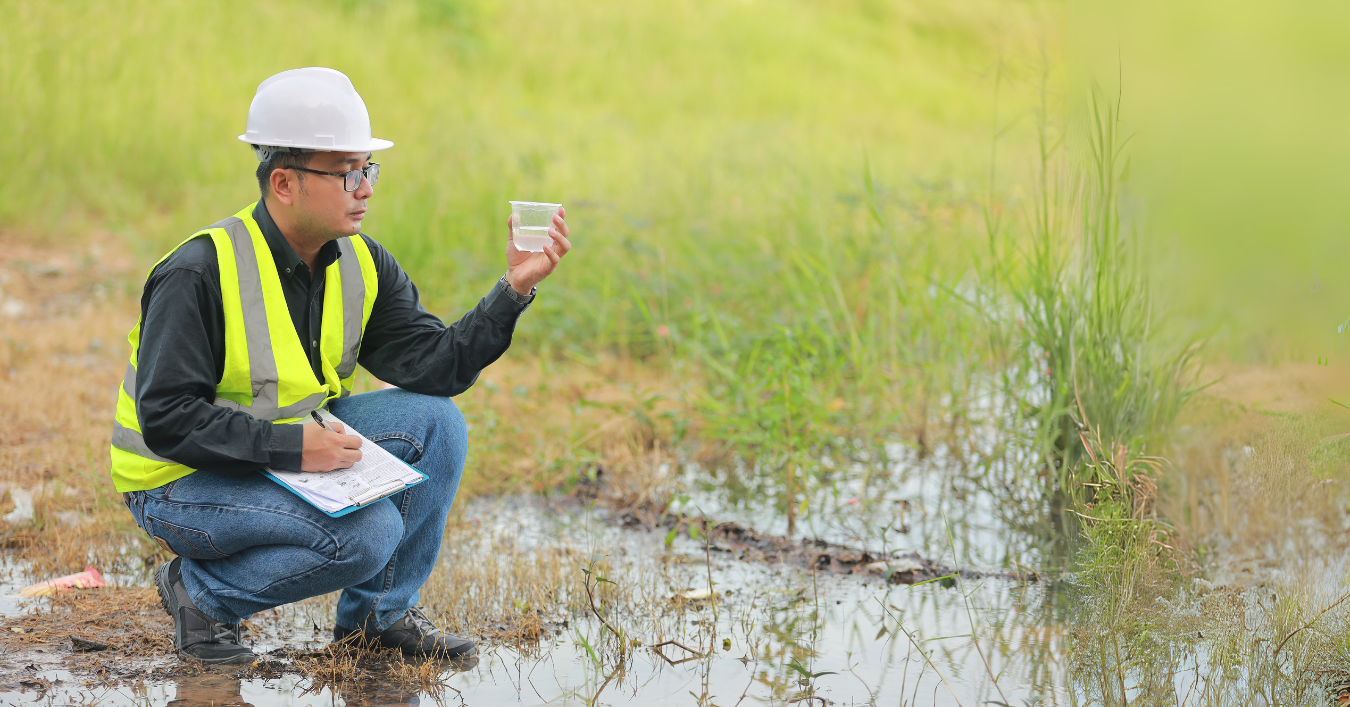
Level 1 Award in Introduction to Environmental Engineering
Study Units
1. Introduction to Environmental Engineering
o Overview of the environmental challenges faced by society.
o Introduction to the role of engineering in addressing environmental issues.
2. Basic Environmental Science Principles
o Study of the Earth’s ecosystems and how engineering affects natural resources.
o Key concepts in environmental sustainability and conservation.
3. Pollution Control and Waste Management
o Understanding pollution, its impact, and control measures.
o Techniques for managing solid, liquid, and hazardous waste.
4. Water Treatment and Supply Systems
o Overview of water resources and the importance of water treatment.
o Basic principles of water treatment and distribution systems.
5. Sustainable Development and Engineering Practices
o The role of environmental engineers in promoting sustainability.
o Sustainable engineering practices that reduce the environmental impact of construction, manufacturing, and urban development.
Learning Outcomes
Upon completing this award, learners will:
1. Understand the basic principles of environmental science and engineering.
2. Be familiar with the main environmental problems, including waste, water pollution, and air pollution.
3. Learn about sustainable engineering practices and how they can be applied to reduce environmental impact.
4. Gain a foundational understanding of water treatment processes, waste management, and pollution control technologies.
This introductory award is perfect for individuals eager to explore the field of environmental engineering and its role in building a sustainable future. It is particularly suited for:
Aspiring Environmental Engineers
Those planning to begin a career in environmental engineering or related disciplines such as sustainability, green technology, or civil infrastructure.
Students and School Leavers
Young learners seeking a foundation in environmental science and engineering before pursuing higher education or vocational training.
Environmental Awareness Enthusiasts
Anyone interested in understanding how engineering can solve environmental issues like pollution, waste, and water scarcity.
Municipal and Utility Workers
Entry-level employees or field staff in waste management, water treatment, or sanitation departments who need technical awareness of environmental systems.
NGO and Community Workers
Personnel involved in environmental advocacy, community development, or public health projects requiring a basic understanding of eco-friendly engineering solutions.
Construction and Infrastructure Staff
Individuals working in civil engineering, construction, or urban planning who need to consider environmental impact in their roles.
Career Changers and Job Seekers
Those looking to transition into green careers or enter the fast-growing field of environmental sustainability and compliance.
Our assessment process is designed to ensure every learner achieves the required level of knowledge, skills, and understanding outlined in each course unit.
Purpose of Assessment
Assessment helps measure how well a learner has met the learning outcomes. It ensures consistency, quality, and fairness across all learners.
What Learners Need to Do
Learners must provide clear evidence that shows they have met all the learning outcomes and assessment criteria for each unit. This evidence can take different forms depending on the course and type of learning.
Types of Acceptable Evidence
Assignments, reports, or projects
Worksheets or written tasks
Portfolios of practical work
Answers to oral or written questions
Test or exam papers
Understanding the Structure
Learning outcomes explain what learners should know, understand, or be able to do.
Assessment criteria set the standard learners must meet to achieve each learning outcome.
Assessment Guidelines
All assessment must be authentic, current, and relevant to the unit.
Evidence must match each assessment criterion clearly.
Plagiarism or copied work is not accepted.
All learners must complete assessments within the given timelines.
Where applicable, assessments may be reviewed or verified by internal or external quality assurers.
Full learning outcomes and assessment criteria for each qualification are available from page 8 of the course handbook.
Top Courses
No results found.
Related Courses
Let's Get in touch
Deleting Course Review
Course Access
This course is password protected. To access it please enter your password below:



